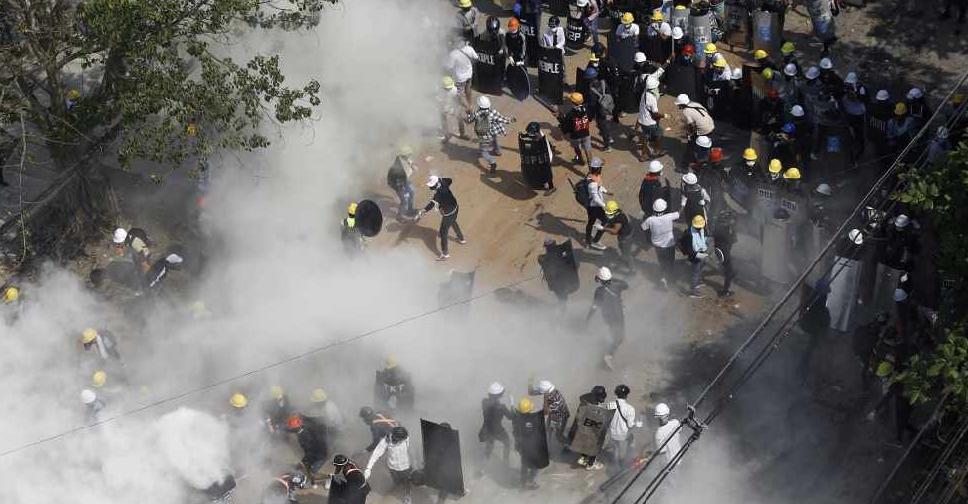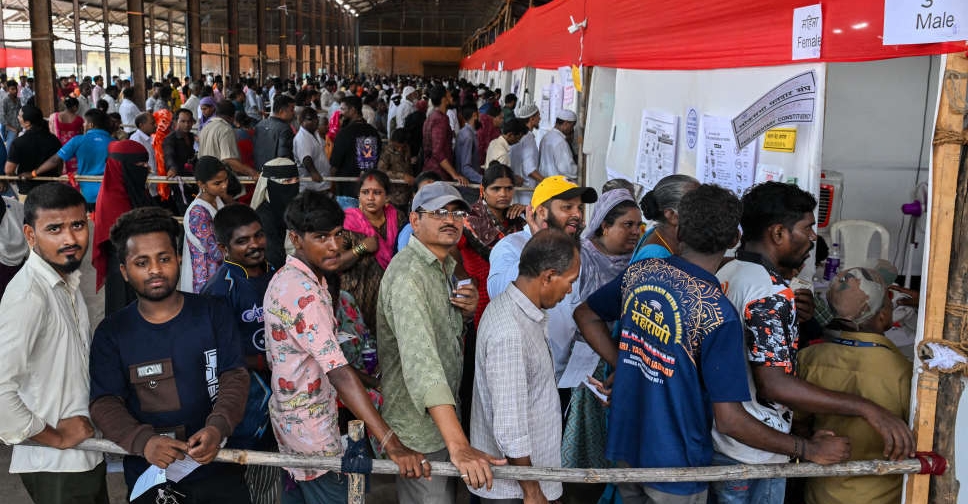
At least two people were killed in police firing in Myanmar overnight, domestic media reported, as activists called for more anti-coup protests on the death anniversary of a student whose killing in 1988 sparked an uprising against the government.
Saturday's calls for protests came as the leaders of the United States, India, Australia and Japan vowed to work together to restore democracy in Myanmar where violence has escalated as authorities crack down on protests and civil disobedience.
Domestic media reported two protesters were killed in police firing in the Tharketa district of Myanmar's commercial capital Yangon overnight. DVB News said police opened fire on a crowd that gathered outside the Tharketa police station demanding the release of people arrested.
Posters spread on social media calling on people to come out on the streets to protest against the junta and to mark the death anniversary of Phone Maw, who was shot and killed by security forces in 1988 inside what was then known as the Rangoon Institute of Technology campus.
His shooting and that of another student who died a few weeks later sparked widespread protests against the military government known as the 8-8-88 campaign, because they peaked in August that year. An estimated 3,000 people were killed when the army crushed the uprising.
Aung San Suu Kyi emerged as a democracy icon during the movement and was kept under house arrest for nearly two decades. She was released in 2008 as the military began democratic reforms and her National League for Democracy won elections in 2015 and again in November last year.
On Feb. 1 this year, the generals overthrew her government and detained Suu Kyi and many of her cabinet colleagues, claiming fraud in the November elections.
More than 70 people have been killed in the Southeast Asian nation in widespread protests since then, the Assistance Association for Political Prisoners (AAPP) advocacy group said.
The coup in Myanmar, where the military has close ties to China, is a major early test for new US President Joe Biden.
His administration flagged a virtual meeting with the Indian, Japanese and Australian leaders on Friday, the first official summit of a group known as the Quad, as part of a push to demonstrate a renewed US commitment to regional security.
"As long-standing supporters of Myanmar and its people, we emphasise the urgent need to restore democracy and the priority of strengthening democratic resilience," the four leaders said in a statement released by the White House.
A spokesman for the junta did not answer phone calls from Reuters seeking comment.

 Iranian President Raisi killed in helicopter accident, state media says
Iranian President Raisi killed in helicopter accident, state media says
 Assange given permission to appeal against US extradition
Assange given permission to appeal against US extradition
 Israel intends to broaden Rafah sweep, Defence Minister tells US
Israel intends to broaden Rafah sweep, Defence Minister tells US
 New Taiwanese president calls on China to stop threats
New Taiwanese president calls on China to stop threats
 India votes in fifth phase of elections
India votes in fifth phase of elections



